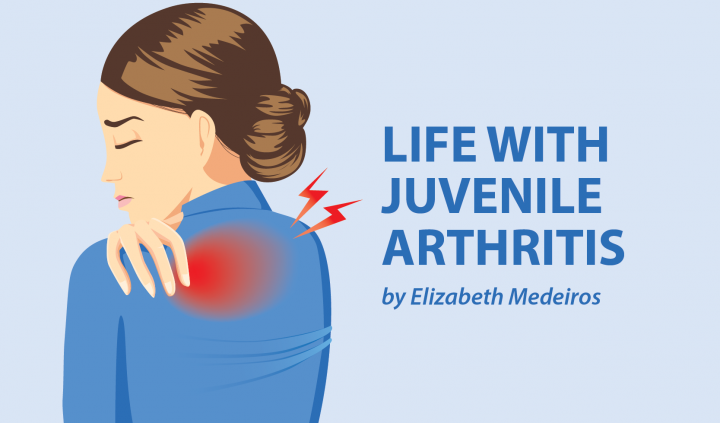At age 14, I spent a week at a camp for children with juvenile arthritis. While there, the other campers and I spent time talking and laughing about the comments people have made to us: “Kids can’t get arthritis,” “My grandmother has that,” and, “Have you tried Tylenol?” But there was one comment that not only bothered us but actually hurt: “You’ll grow out of having juvenile arthritis.”
While the comment sounds reassuring, it’s actually a myth. Unfortunately, it’s a very common thing heard by kids with juvenile arthritis. Many of us had believed it until our rheumatologists told us it might not happen. But even though the odds were still good for some of us, the news was a hard blow for all. It is hard to be promised something as a child, only to find out it’s not guaranteed.
The facts
As much as we would like to believe arthritis disappears the way growing pains do, not every child with JA will achieve remission by adulthood. Very few stats exist to tell us exactly what to expect, but it is estimated that about half of children with juvenile arthritis will “outgrow” their disease, while half might still need treatment into adulthood. Additionally, things such as joint damage can have lasting effects, even after JA is in remission.
Things are better now than ever
Despite knowing that not every child will go into remission, more children with JA are achieving remission than ever before. With timely treatment, children have the best outcome and reduce their chances of long-term issues. The progress we’ve made in the last few years has been promising, especially since the introduction of biologics. What’s more, we have far more resources for information, advice, and support, thanks to the internet.
Where are they now?
All the kids I went to summer camp with have long grown up. While some did go into remission, some still deal with juvenile arthritis. But that hasn’t stopped many of them from leading full, busy lives. Many of us went to college and are pursuing fulfilling careers — there are nurses, doctors, designers, engineers, and even a firefighter. Some of us are already married and started families, and many of us plan on doing so soon.
A diagnosis of juvenile arthritis can be life-changing, but holding onto a myth for hope isn’t healthy. Growing up, my parents and I always tried to have the mindset of, “It would be nice to outgrow JA, but we know it might not happen.” We focused on taking life one step at a time, instead of planning long-term. Instead of being disappointed I never went into remission, my family was so happy to see that I am doing a million times better now than when I was a kid. And who knows? Just because it didn’t happen when I turned 18 doesn’t mean it will never happen.
***
Note: Juvenile Arthritis News is strictly a news and information website about the disease. It does not provide medical advice, diagnosis, or treatment. This content is not intended to be a substitute for professional medical advice, diagnosis, or treatment. Always seek the advice of your physician or other qualified health provider with any questions you may have regarding a medical condition. Never disregard professional medical advice or delay in seeking it because of something you have read on this website. The opinions expressed in this column are not those of Juvenile Arthritis News, or its parent company, BioNews Services, and are intended to spark discussion about issues pertaining to juvenile arthritis.


